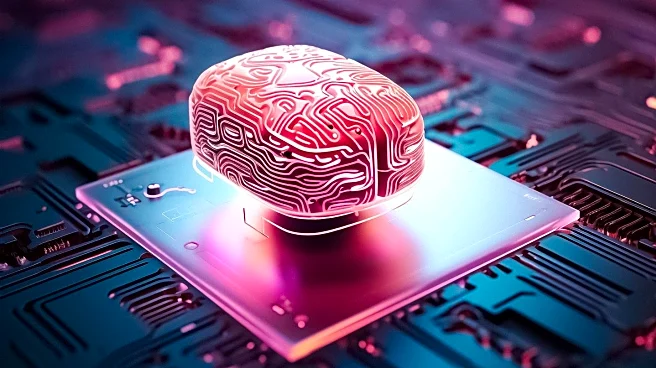What's Happening?
A new brain implant developed by researchers at the University of California, San Francisco, provides personalized deep brain stimulation to relieve chronic pain. The implant monitors brain activity and delivers targeted stimulation, significantly reducing pain intensity for participants in a recent trial. The study involved six individuals with previously untreatable chronic pain, with five experiencing substantial relief. The implant's adaptive stimulation approach, activated only during pain episodes, has shown promising results in reducing pain and improving physical function.
Why It's Important?
Chronic pain affects a significant portion of the U.S. population, often with limited relief from conventional therapies. This innovative brain implant offers a personalized approach to pain management, addressing the unique brain circuitry changes associated with chronic pain. The technology's ability to provide long-term relief and improve quality of life for patients highlights its potential to transform pain management practices. By reducing reliance on medications and enhancing physical function, the implant could have profound implications for healthcare providers and patients alike.
What's Next?
The next phase of research will focus on comparing adaptive versus constant stimulation to evaluate differences in outcomes. Researchers aim to explore less invasive methods of neuromodulation to make the technology more accessible. As the study progresses, further trials and evaluations will be conducted to refine the implant's functionality and expand its application to a broader patient population. The success of this personalized approach may lead to increased interest and investment in neuromodulation technologies for chronic pain management.










